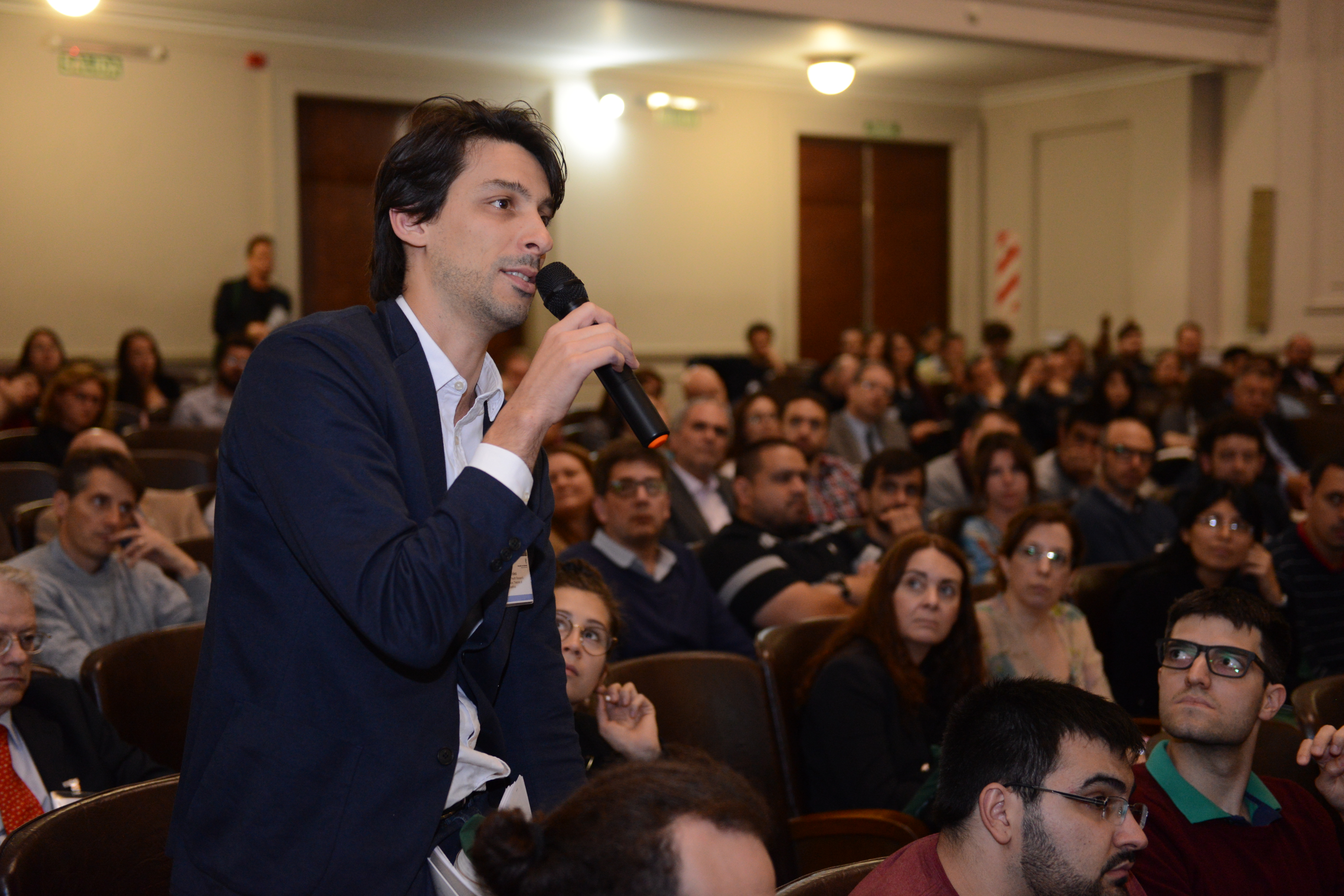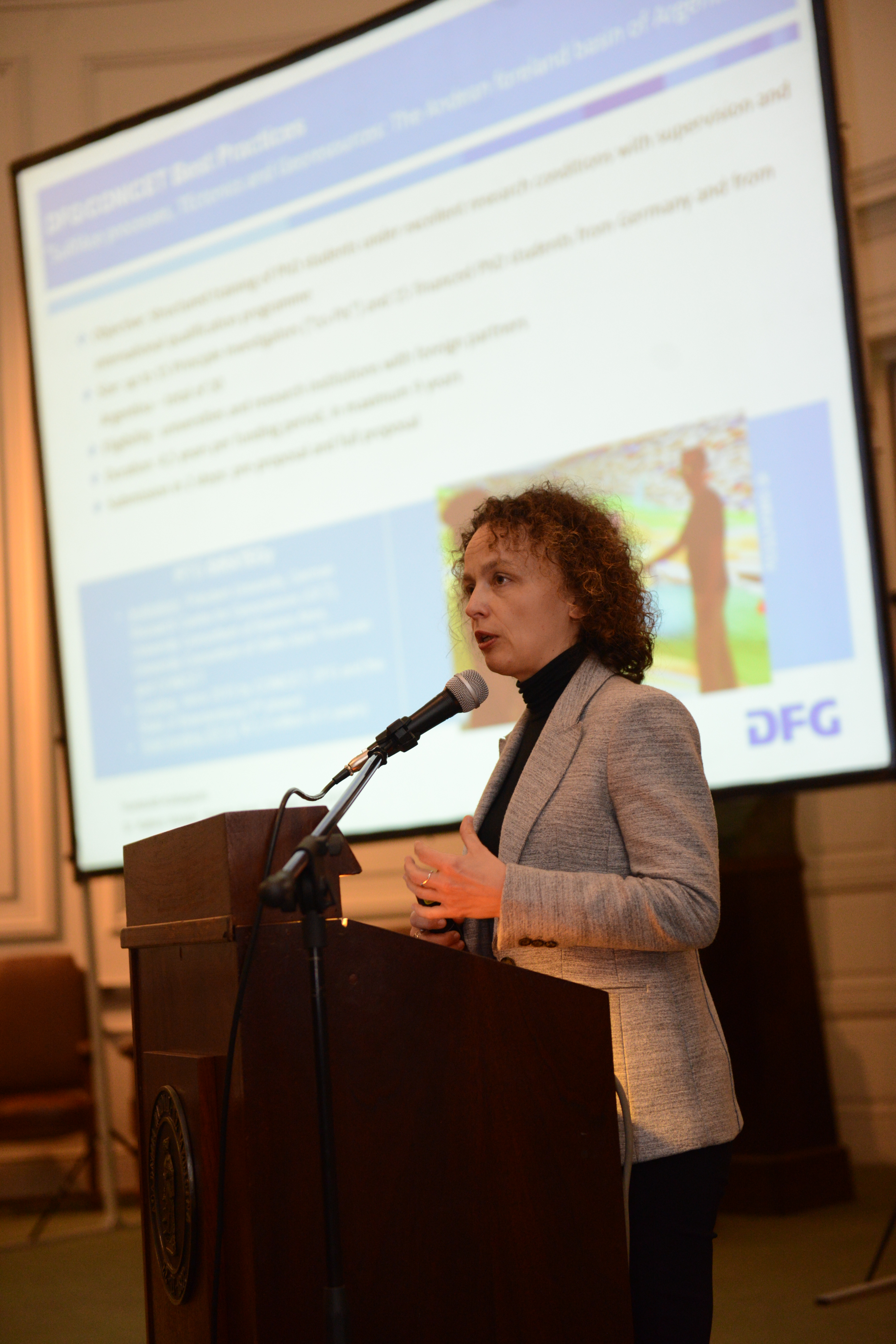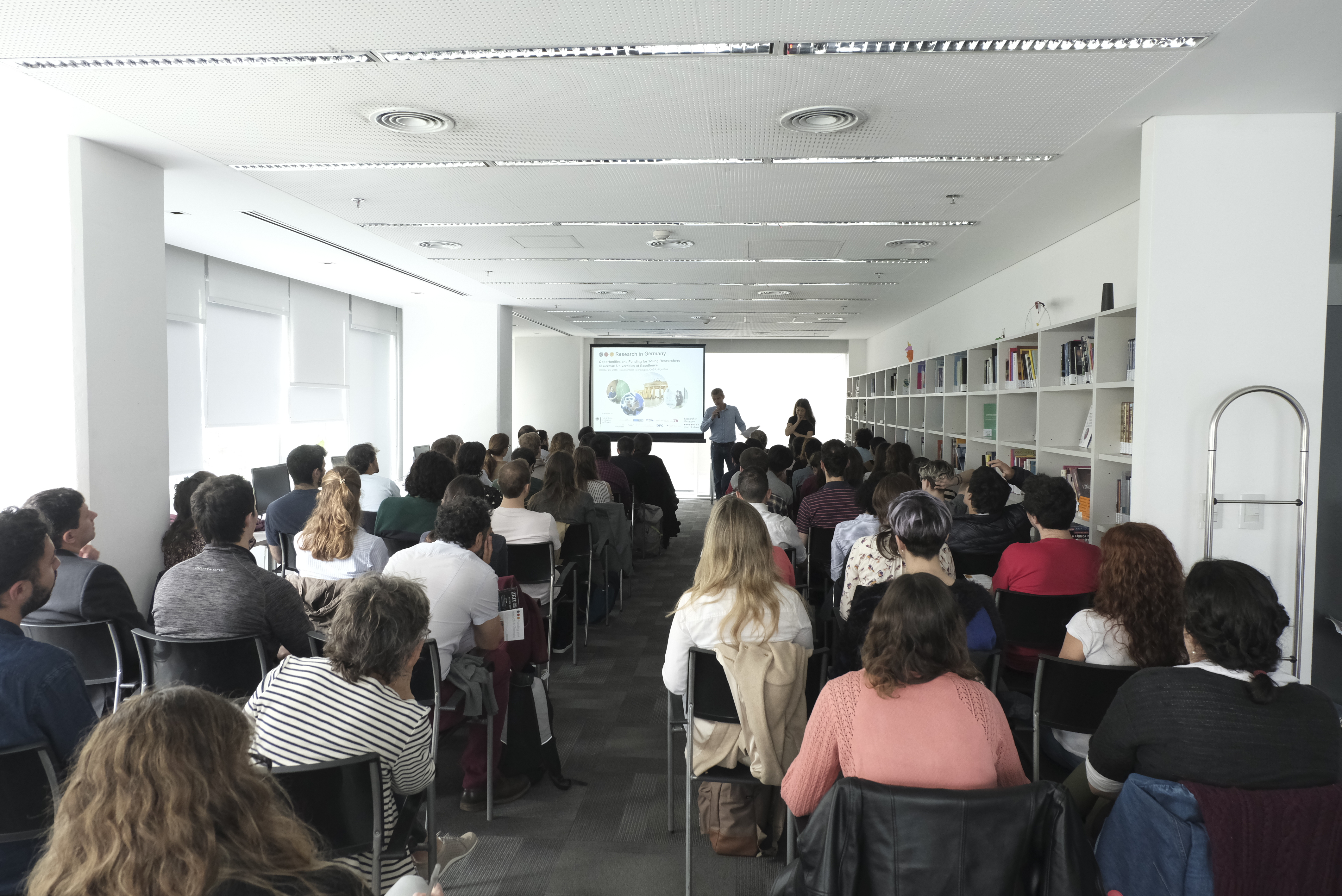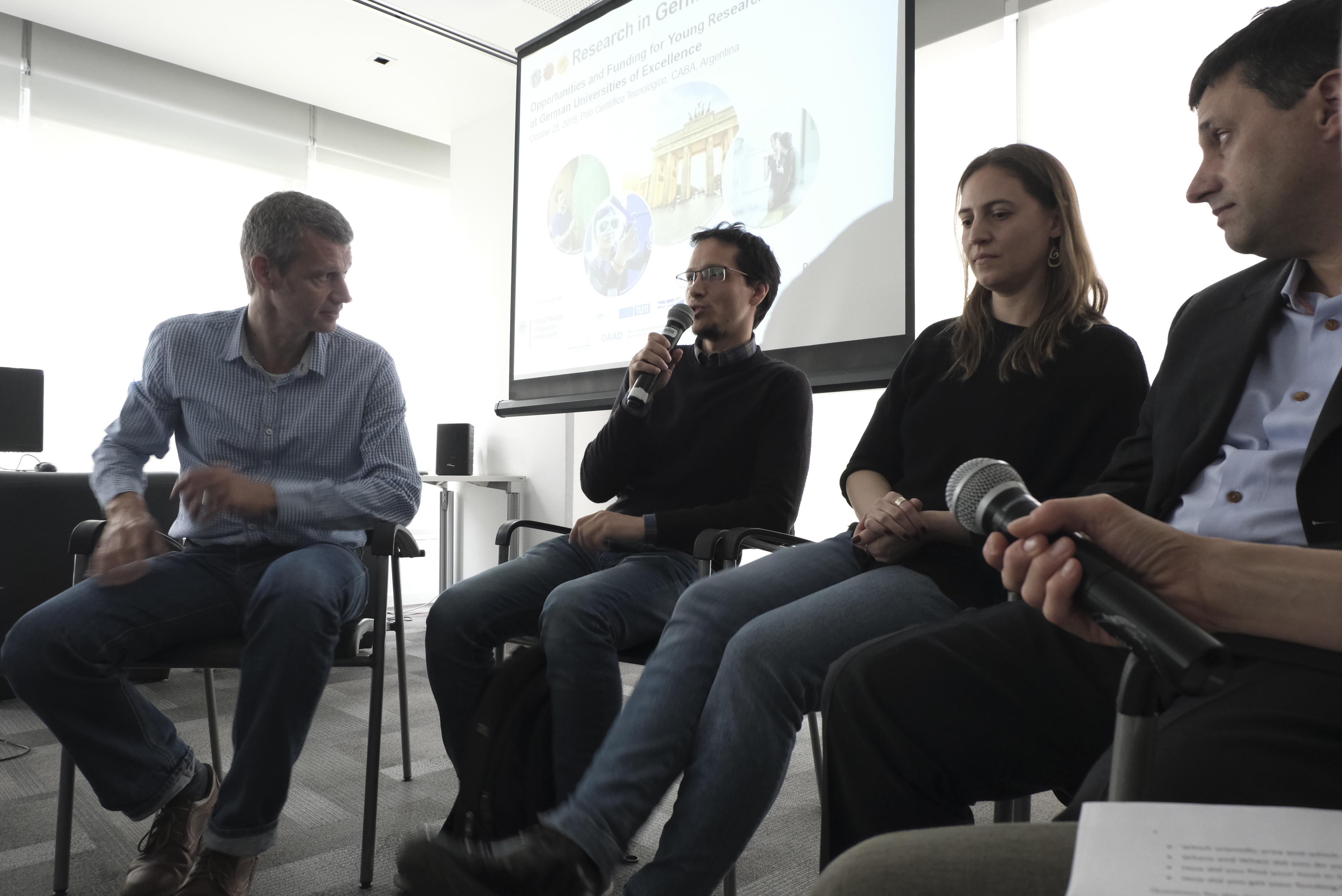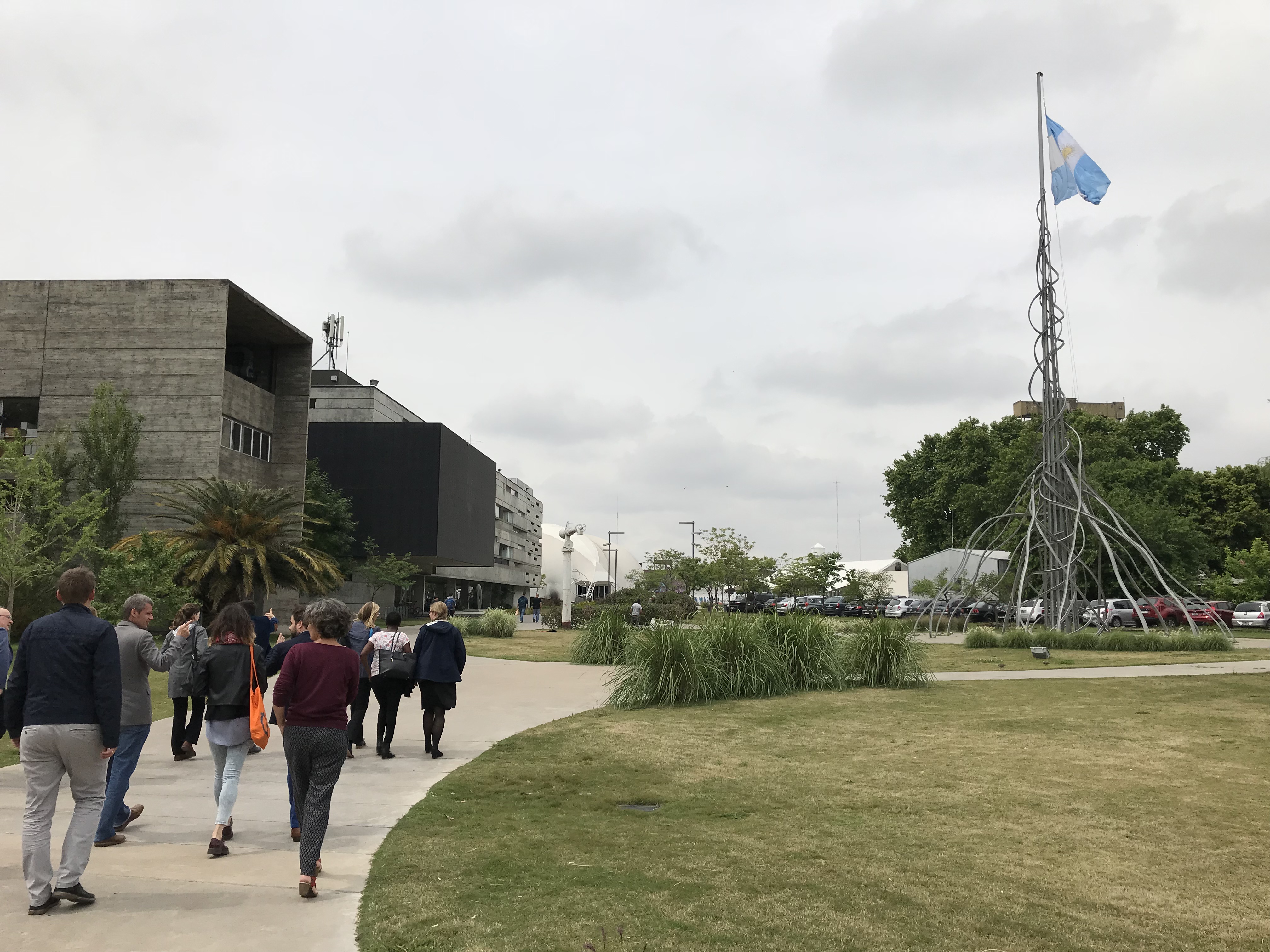Presentation of the research location Germany to young talent in Argentina
(10.12.18) October was an eventful month for science in Argentina. Firstly, with the publication by the DFG, together with its Argentinian partner organisation CONICET, of an announcement for funding of German-Argentinian research projects. Researchers from specific research areas in both countries have until 5 April 2019 to submit their joint project proposals. The timing of the announcement could not have been more favourable, with two major events by German organisations taking place in Buenos Aires that same week: a Humboldt Colloquium and a seminar for early career researchers.
Attendee actively participates in the opening session
© Humboldt-Stiftung/Juan Manuel Lopetegui
Over a period of three days, the colloquium organised by the Alexander von Humboldt Foundation brought together more than 250 researchers from Uruguay and Argentina – many of them alumni of different institutions in Germany. Representatives of many German organisations were also present, including from the Federal Ministry of Education and Research (BMBF), the Max Planck Society, the DFG and DAAD. Based on the theme of “Shaping the Future of German-Argentinian Scientific Cooperation – The Role of Curiosity-Driven Research”, the event also included a workshop which provided an opportunity for participants from different countries to exchange experiences. Discussions also took place on opportunities and challenges in relation to international research cooperations, as well as the associated role of basic research.
The attending President of the Alexander von Humboldt Foundation, Prof. Dr. Hans-Christian Pape, showed great interest in intensifying the collaboration with Argentina and Uruguay and also played an active role in the discussions. “Curiosity is undoubtedly the most important driving force for science. When curiosity and creativity come together, the result is generally excellence,” he explained.
The President of the National Academy of Sciences of Uruguay, Prof. Dr. Rafael Radi, echoed this sentiment during one of the panels and confirmed that curiosity had paved the way for scientific thinking for thousands of years. “Hunger drives us to search for food and curiosity leads us to a search for knowledge,” commented Radi, a specialist in the field of neurology.
Additional chairs had to be brought to the room to accommodate all interested listeners
© FU Berlin
The highly qualified audience at the event provided an excellent forum for the presentation of the DFG’s funding programmes and, in particular, the offer for international cooperations. Dr. Kathrin Winkler, Head of the DFG Office Latin America, presented opportunities for cooperation with Argentina, which were received with great interest. Many participants took advantage of the three-day event to seek individual advice on possibilities for research and funding.
The DFG also took part in a seminar for early career researchers organised by the Free University of Berlin, the Technische Universität Berlin, the University of Münster and the University Alliance Ruhr. The workshop was supported by the DAAD and the Humboldt Foundation, and around 80 doctoral researchers and post-docs filled every seat in the function room of the Argentinian National Academy of Sciences.
Following the presentation by the universities, three Argentinian alumni shared their experiences of study and research visits at German institutions and gave the audience valuable advice on how to look for a supervisor and overcome language and cultural barriers. "I was astounded at how normal criticism is in the everyday research environment in Germany. My working group was preparing for a presentation at a conference, and one of the researchers received very critical feedback from the other colleagues. Alarmed at the outcome of the situation, I was about to leave the room. In the end, however, the researcher thanked them all for their points of criticism and adjusted his presentation accordingly," said Dr. Jorge Pablo de Celis, who completed his postdoc at the Technical University of Berlin.
The comprehensive programme in Argentina also included a visit to the National University of General San Martin (UNSAM), a public institution specialising in research. The German delegation was received by Deputy Rector Dr. Carlos Alberto Frasch, who shed light on the impressive history of the young university that was not founded until 1992. In Argentina, it is already fifth in the publication ranking and it ranks eleventh in Latin America. According to Frasch and his colleagues, UNSAM has a keen interest in building on its cooperation and arrangements with German partners.
